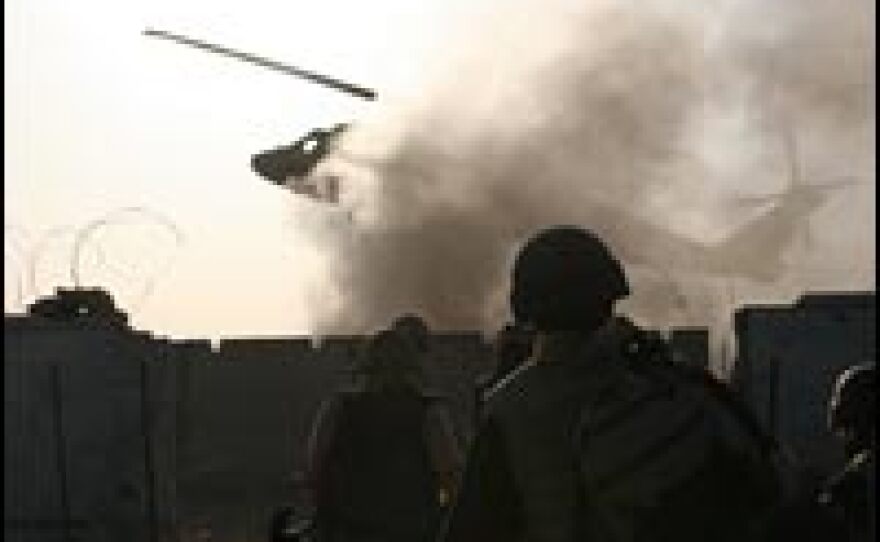

After winning a major battle against a resurgent Taliban in southern Afghanistan, NATO forces are working to keep their gains from slipping away. Building a road to link remote villages is one way they hope to keep locals from siding with the enemy.
Lt. Gen. David Richards, the NATO commander in Afghanistan, says that reconstruction projects are critical to turning the tide against the Taliban, who were ousted in a U.S.-led war five years ago. He predicts that if those projects don't get under way and if Afghans don't see an improvement in their lives in the next six months, the people will side with the Taliban.
NATO troops are mounting a campaign on two fronts -- fighting the Taliban and fixing things for the people.
A local road project in the Panjwai District near Kandahar is one example of the latter.
The road started out as a military matter, designed to provide a straight, paved, mine-resistant path through the battlefields. But it soon took on a second life as a development project for local residents. The road has the potential to link several isolated villages -- which are vulnerable to the Taliban -- to the main highway and to the Panjwai Bazaar.
Col. Fred Lewis of the Canadian Forces imagines the road allowing farmers to get their crops to currently inaccessible markets. He also envisions more goods getting through to villagers, and the government reaching them, as well.
But building the road itself is a dangerous matter. A Canadian soldier died Saturday when his vehicle was hit by an improvised explosive device. It was one of a series of deadly incidents since fighting in the Panjwai area ended.
Copyright 2022 NPR. To see more, visit https://www.npr.org. 9(MDAzMjM2NDYzMDEyMzc1Njk5NjAxNzY3OQ001))







